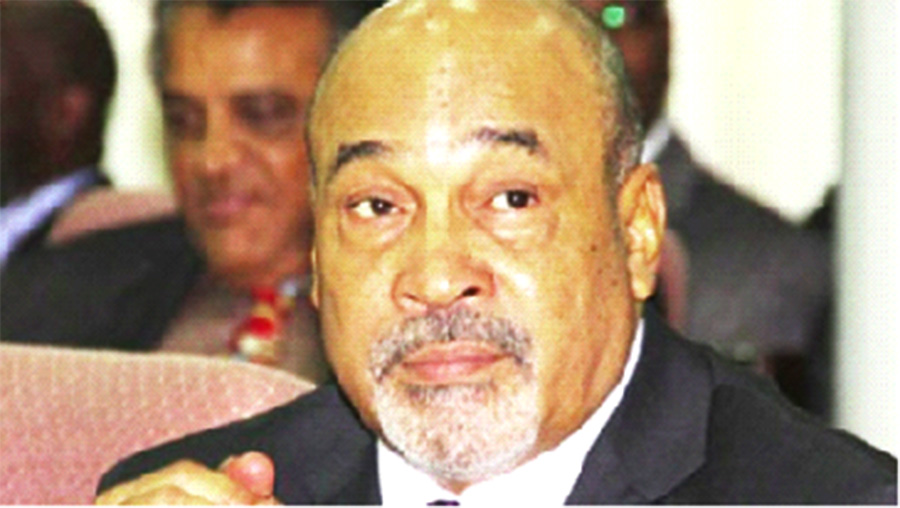PARAMARIBO, (Reuters) – A three-judge panel in Suriname yesterday upheld the conviction of former President Desi Bouterse for his role in the execution of 15 people in the former Dutch colony in December 1982, though no arrest warrant was immediately issued.
Bouterse, 78, who dominated Suriname’s politics for decades and left office in 2020, faces 20 years in prison.
He has denied the charges and this was his final possible appeal.
The government said the verdict was “an important moment of healing” and called on citizens to accept it, but added that the court had not ordered immediate imprisonment.
“The government will in the coming period, in close consultation with the relevant authorities, in compliance with the legal provisions, take up the follow-up to the verdict pronounced,” it said in a statement.
Bouterse’s lawyer Irvin Kanhai told reporters as he left the court that he had not yet spoken to his client.
The verdict is “disappointing, but let me read it first,” Kanhai said.
The court ruled in 2019 that Bouterse had overseen an operation in which soldiers abducted 16 leading government critics, including lawyers, journalists, union leaders, soldiers and university professors, from their homes.
Fifteen of them were murdered at a colonial fortress in the capital Paramaribo. One trade union leader survived and gave testimony against Bouterse.
Bouterse has said in the past the murdered men were connected to an invasion plot involving the Netherlands and the United States.
His defense had argued their deaths were not premeditated, but the court said it concluded that Bouterse “had sufficient time to consider the decision to eliminate the victims.”
“It took 41 years, but the long arm of the law has finally caught up to Desi Bouterse,” said lawyer Reed Brody, who monitored the case for non-governmental organization the International Commission of Jurists. “Today’s decision is a victory for the families of Bouterse’s victims, who never gave up.”
Hugo Essed, who represented the families of those murdered, said: “I have every belief that the sentences imposed will be enforced.”
Neither Bouterse nor four other ex-military officers convicted in the case were present at the hearing. The four others were sentenced to 15 years each.
The U.S. and Dutch embassies – which commended the integrity of the judiciary in a joint statement with other embassies after the verdict – had earlier warned of potential unrest around the ruling.
The spokesman for Bouterse’s National Democratic Party (NDP), Ricardo Panka, called on its members to focus on 2025 elections and refrain from any actions that could “disrupt peace and security.”
Bouterse himself told supporters during a rally on Saturday there was “no point in letting things get out of hand.”
Bouterse seized power in a 1980 coup against Suriname’s first prime minister, just five years after the South American country’s independence from the Netherlands.
He led the country through the 1980s as head of a military government, then assumed office again in 2010, securing re-election five years later.
Bouterse could ask current President Chan Santokhi for a pardon.
Santokhi investigated the so-called “December murders” as a police commissioner and later, as justice minister, pushed for the case to move ahead.
The NDP consistently tried to halt the case, which began in 2007. In 2012, the NDP-controlled legislature passed an amnesty law giving Bouterse immunity, but the law was later overturned.






